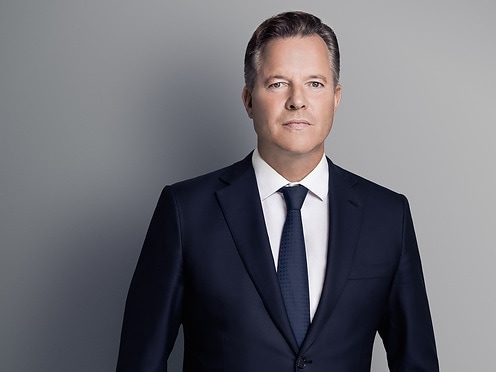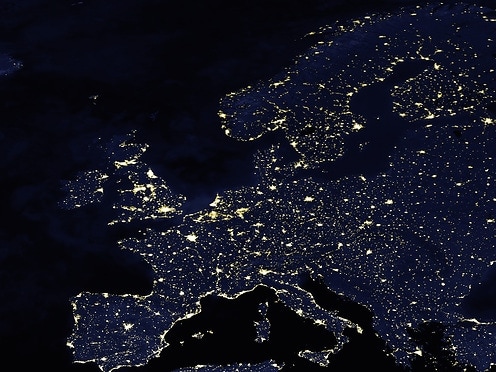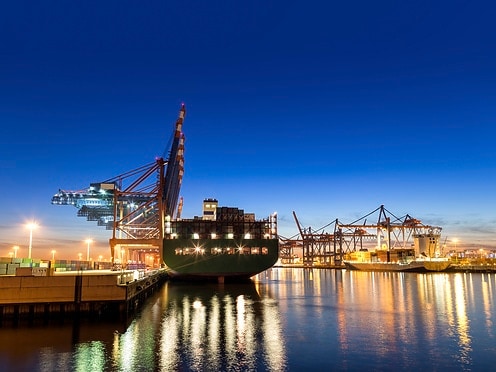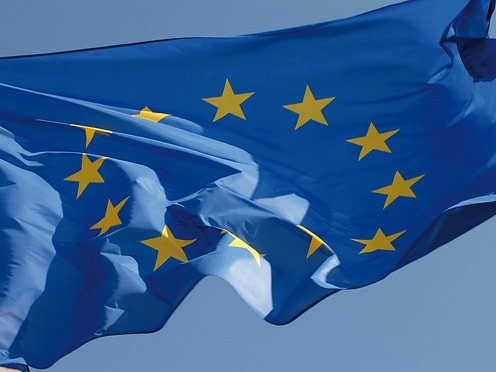Wake-up call to Berlin: we need to rethink industrial policy!
Securing critical infrastructure, strengthening Europe, overcoming crises – this can only succeed with a powerful German industry.
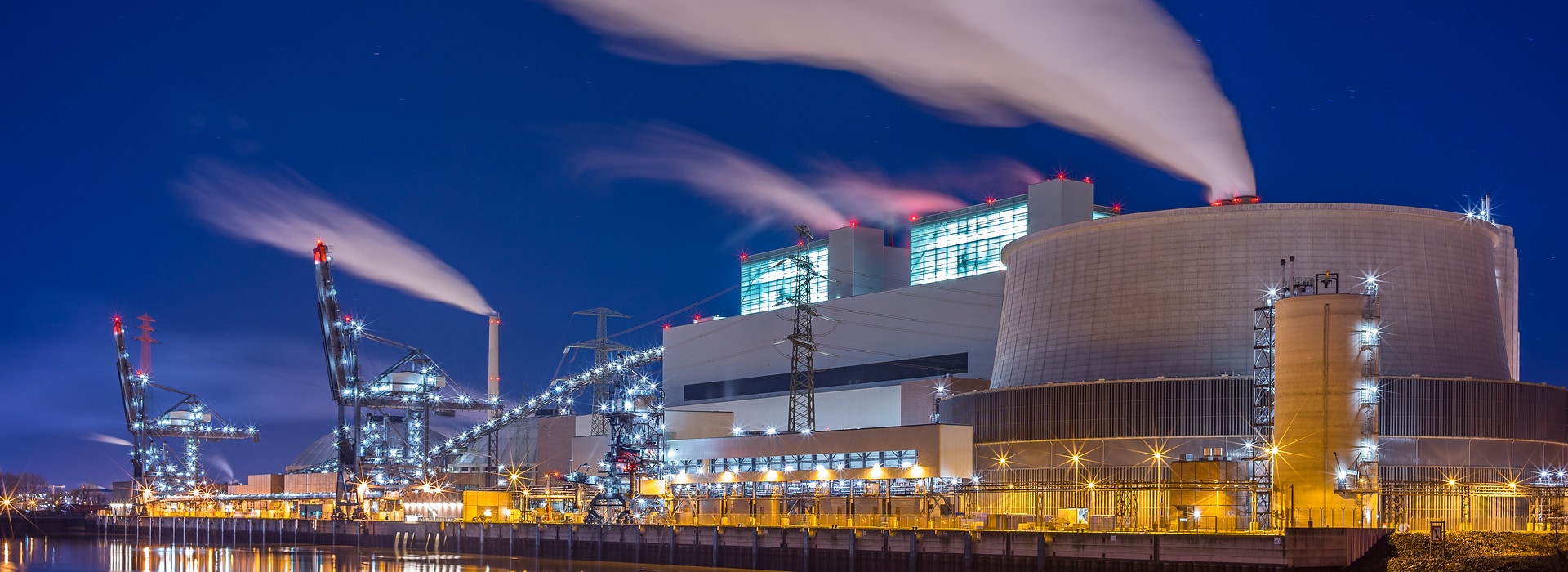
Who is the big loser of the “geoeconomic turnaround”?

Oliver Hermes is President & CEO of the Wilo Group, Chairman of the Board of Trustees of the Wilo-Foundation, member of the Board of Trustees of the Foundation for Family Businesses, member of the Executive Committee of the Near and Middle East Association (NUMOV), and member of the Management Board of the German-African Business Association (Afrika-Verein). He is an essayist with articles published in independent media. The opinions expressed by the author are his own.
As a direct consequence of the omnipresent geopolitical turnaround, we are currently experiencing a “geoeconomic turnaround”.
Old alliances are crumbling; multinational collaborations are having to readjust. Protectionist instruments – such as trade barriers, sanctions and technology embargoes – are the result of politically driven decoupling of supply chains initiated, with the extremely challenging goal of restructuring them.
During the COVID-19 pandemic, we in Europe were still dreaming of more secure critical infrastructure, of near-shoring or friend-shoring to bring value creation from other regions back home to the European Union. All this with the ambitious aspiration of being more independent from other states. On closer inspection, however, this aspiration and the actual reality diverge considerably.
One example is the supply bottlenecks in the sourcing of medical and pharmaceutical products. The aim was to eliminate shortages of critical goods and fill gaps in procurement or our own production. Anyone who has been to the pharmacy in the last few days to order certain medicines can see that availability of important products is still sometimes an issue. Instead, there are still dependencies with regard to the supply of intermediate goods from outside the EU.
Another example is Europe’s energy procurement. If the aim was to reduce energy imports from Russia and become more independent here, this has only been partially achieved. European Union imports of liquefied natural gas (LNG) from Russia, for example, have increased by a whopping 40% compared to the same period in 2021 – before the Russian invasion of Ukraine – according to data from the non-governmental organisation Global Witness. Furthermore, Germany appears to be indirectly importing significant quantities of Russian gas oil (produced from crude oil) via India. Gas oil, in turn, is the most important ingredient of diesel and heating oil. At any rate, according to the figures of the German Federal Statistical Office, German imports of petroleum products from India have increased more than tenfold in the current year compared to the same period last year. At the same time, India is importing significantly more crude oil from Russia, according to UN data.
These two examples from the energy as well as the medical/pharmaceutical industries show that our critical infrastructure is far from being resilient and independent of other states.
Instead of filling gaps in the supply of critical infrastructure and making Europe more independent, another disturbing phenomenon has emerged in Germany: the German Economic Institute in Cologne has concluded, based on OECD figures, that investment by foreign companies in Germany has almost completely collapsed recently.
It seems like foreign companies will only invest in Germany if exorbitant state subsidies are guaranteed at the same time, as is the case in the chip industry. At the same time, German companies are investing outside Germany. According to the Foundation for Family Businesses, 60 per cent of German family businesses rate Germany as a business location with a score of 4, 5 or even 6 (with 6 being the lowest score).
In a large number of key industries, Germany and Europe are obviously in danger of falling behind. The spectre of de-industrialisation is looming.
Without our own key industries, however, the goal of securing critical infrastructure and being resilient and independent in Europe and Germany simply cannot be achieved. It cannot be done without industry!
The tentative conclusion is that Europe, and Germany in particular, have so far been the big losers of the geoeconomic turnaround.
What is holding industrial activity back in Germany? And where is investment directed?
A study by the ifo Institute in Munich and the Leibniz Centre for European Economic Research (ZEW), commissioned by the Foundation for Family Businesses, provides information on this subject by analysing the location criteria of Germany as well as important industrial nations and emerging markets.
The study shows that it is not only the weak economy that prevents companies from investing in Germany.
Particularly negative aspects holding back investment are the high level of regulation (i.e. bureaucracy), the relatively high energy prices and the lack of skilled labour. Only then do labour costs and the tax burden follow in the list of location disadvantages.
The USA, Poland, India and China are at the top of companies’ investment plans for the next five years. Germany lags behind and is also the big loser in the competition between business locations. Seventeen of the industrialised countries surveyed were rated better than Germany in the location comparison.
It remains to be said that the attractiveness of Germany as an industrial location has “dramatically lost ground”. As a result, the goal of creating resilience and security of supply has become a distant prospect.
If industry gradually disappears, Europe’s and Germany’s dependence on other states will increase. Without industry, “value-oriented” foreign policy becomes impossible and once again seems out of touch with reality.

What do we have to do in Germany to move up the ranks?
Obviously, the framework conditions of the German economy are in need of a major overhaul:
Debureaucratisation
An important point gleamed from the study commissioned by the Foundation for Family Businesses is that while the main reason given for relocating business activities abroad is “opening up new markets”, this is immediately followed by “less state regulation” at the foreign location as the decisive factor for investing outside Germany. This is alarming.
The impenetrable thicket of regulatory provisions in Germany must therefore not only be trimmed, but radically mowed down with a lawnmower.
While other regions and states are launching huge subsidy programmes worth hundreds of billions of dollars (such as the Inflation Reduction Act (IRA) in the United States), the number one task in Germany is to cut red tape.
In economic terms and compared to subsidies, cutting red tape costs almost nothing and is thus extremely efficient in significantly increasing the attractiveness of a location.
Resolving the energy cost dilemma
Energy prices in Germany and Europe will likely remain very high in the medium term. And we in Germany are one of the main reasons why they are so high throughout Europe.
European neighbours do not understand why Germany is paradoxically significantly reducing the energy supply despite the energy shortage in view of the necessities of climate change – namely through the many exits from lignite and hard coal power generation and the withdrawal from nuclear energy.
Anyone who considers the market-price mechanisms to be the basis of supply and demand quickly concludes that a shortage of supply leads to higher prices.
Higher energy prices would then lead to energy-intensive industries relocating, making us more dependent on other states than ever before. Our resilience in Europe is increasingly at risk as a result.
Accordingly, what is needed now is to dramatically accelerate the expansion of renewable energy sources in Germany on the energy generation side, as nuclear energy is already regarded as a “dead horse” and fracking remains a taboo subject in Germany, meaning both are out of bounds at the behest of politicians.
Instead of debating the “pros and cons” of a special industrial energy price ad absurdum, it would be better in Germany in the short term to consider reducing the very high electricity taxes at least down to the level of the European minimum.
However, another way out of the cost dilemma is to create stronger incentives for measures to reduce energy demand.
When it comes to the energy transition, many people only think about the supply side, i.e. the energy supply side.
However, the energy transition in Europe must be complemented and accelerated with more energy efficiency measures, i.e. on the energy demand side. This could significantly reduce energy costs.
Responding to the shortage of skilled workers
Europe and Germany are holding themselves back due to a shortage of skilled labour. Orders cannot be processed, recruitment costs are rising rapidly, and as a consequence, the workforces in the companies have to work more.
According to the ifo Institute and ZEW, 87 per cent of family businesses are feeling the effects of the shortage of skilled workers in Germany and consider it a threat to their competitiveness.
A package of measures must therefore be put together by policymakers to promote occupations requiring apprenticeships more strongly and to facilitate the immigration of skilled workers. In addition, it should be easier and less bureaucratic for seniors to work longer if they want to.
However, companies cannot just wait for the policymakers to deliver a package of measures. They themselves must focus on optimised training and continuing education programmes, improving pay scales, and offering more flexible working hours.
It is high time for action!
Location conditions in worldwide comparison, competitive conditions in a global context and international investment framework conditions can only be moulded to our advantage if we as a society show a willingness to commit to change.
If the economy goes downhill for a prolonged period of time and we remain in last place among the world’s leading industrialised nations in terms of growth, the accompanying loss of prosperity and lack of positive prospects for the future will potentially lead to social upheaval.
Not only would this endanger the supply of critical infrastructure and the independence of Europe and Germany in particular, but increasingly also social cohesion and democracy.
This is already exhibited by the fact that right-wing populist parties are gaining ground not only in Hungary, Slovakia, Sweden and Italy, but also in Germany.
The mood of the German economy and especially of German industry is deteriorating dramatically, filling their employees and citizens with great concern.
So before dividing the world into “good” or “bad”, Europe’s and in particular Germany’s political elite should first ensure that Europe’s economic-industrial base is not being destroyed and dramatic losses of prosperity do not occur. We must first put our own house in order and all work together to ensure that the entire German economy, and with it the economy of Europe, does not go down the drain.
We should not forget that there can be no secure supply of critical infrastructure and thus no resilience and independence in Europe without German and European industry.
Even the future-oriented megatrends of our time cannot be met without industry. Digitalisation, urbanisation, energy shortage, water shortage and climate change are global developments that will shape our lives and societies in the coming decades.
They are giving rise to new business sectors in which European and, in particular, German industry can expand with their products, systems and solutions and make a substantial economic and social contribution worldwide.
To this end, it is necessary to pursue a pro-business, pro-industry policy and not merely an ideological one.









